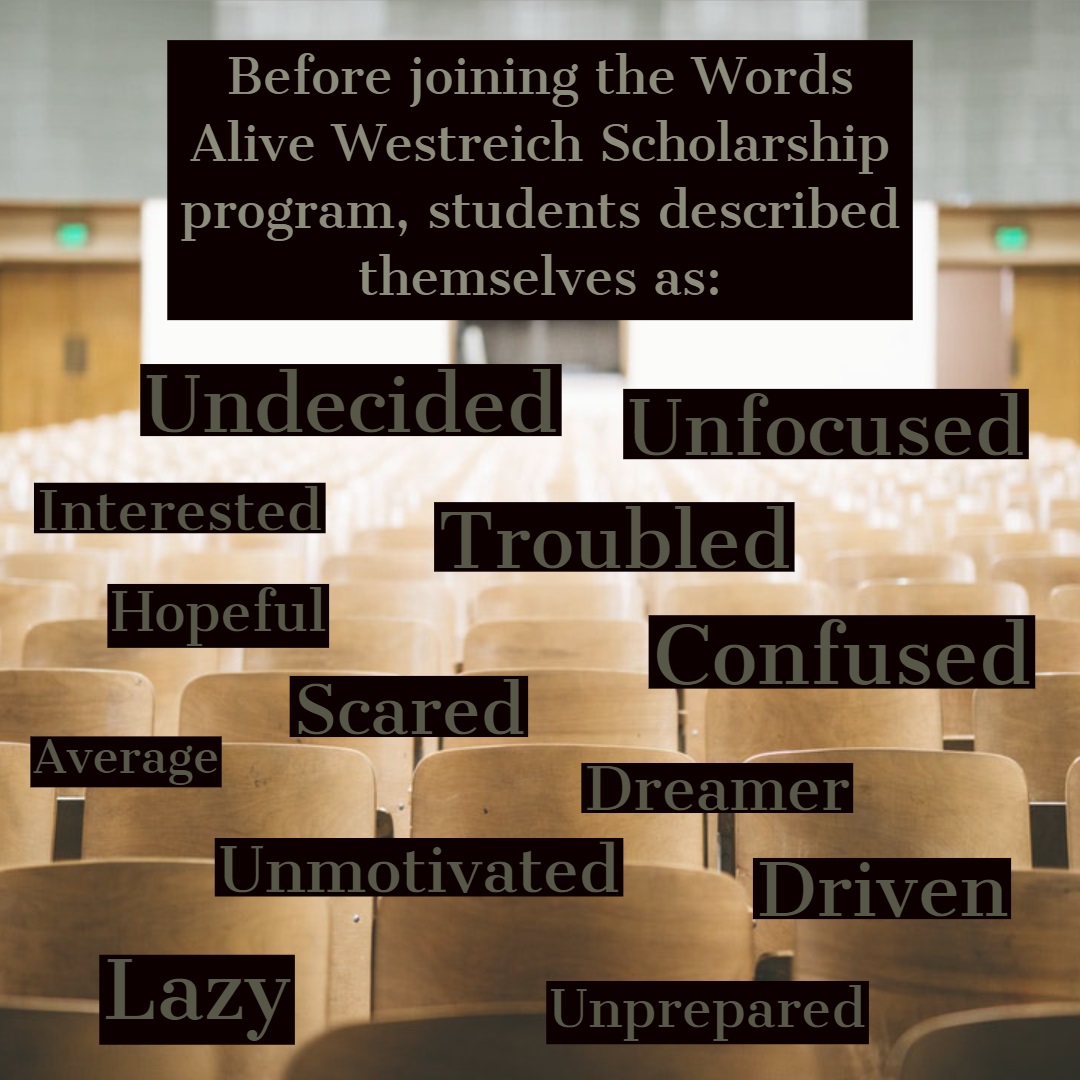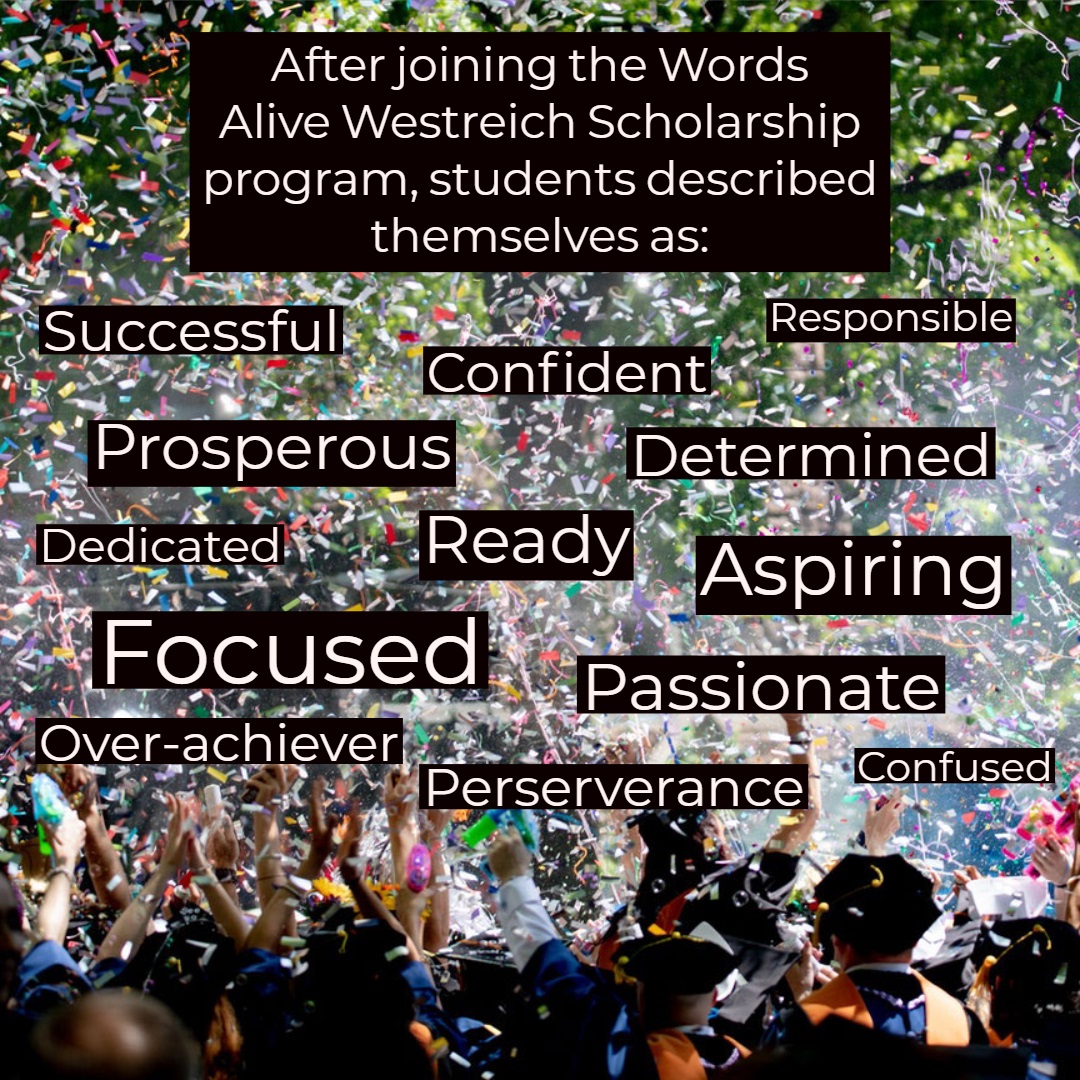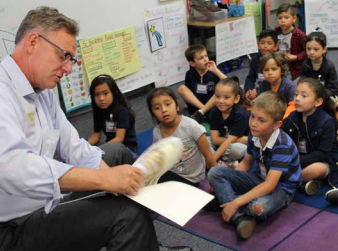To continually provide meaningful and evaluation-driven programming, Words Alive commenced on a seven-month Dialogues in Action (DIA) project to analyze the impact of our Words Alive Westreich Scholarship (WAWS) program using a blended qualitative and quantitative evaluation model. Through this process, we had an opportunity to view our program through the lens of the scholarship recipients, past and present, and their mentors to determine opportunities to enhance our program delivery.
Throughout this process, we identified eight findings and then brainstormed ways we could update and improve the program based on these findings. Here is the eighth and final finding!
"I believe in my future."
All scholars in the program are graduates of Juvenile Court & Community Schools, which serves a student body experiencing extraordinary challenges such as juvenile delinquency, homelessness, community violence and/or teen parenting. Because of this, they are often focused on the present, getting through day-by-day and making sure their basic, immediate needs are met. Through our interviews with participants and mentors, we found that many of the scholars made clear connections between participating in the program and a discovered or renewed focus on their future. In fact, 92% of the students said they now feel more hopeful about their education and future.
Due to the extraordinary circumstances these students come from, scholars often felt as if they were not in control of their own lives but were instead trapped by their upbringing and environment. However, we found that after participating in the program, the financial, mentor and professional development aspects of the program have helped scholars believe in themselves, their futures and their abilities — creating a sense of agency over their personal and academic trajectory. This translates to students taking action toward improving their future.
After participating in the program,
85% of scholars said they now use coping strategies to address challenges they face
85% of scholars said they now take action steps toward the goals they set
100% of scholars said they the now take advantage of academic, professional and community resources
Mentors recognize this growth too:
“I think she sees each of these accomplishments as milestones – and they are. It supports her sense of self-worth, value and confidence. For some people, it’s easy, but for her it has been incredibly challenging. Every single milestone increases her confidence. And she’s facing this hurdle now but she’s not going to give up.”
Two scholars mentioned they actively plan ahead in terms of applying for additional scholarships, saying, “I’m saving scholarships for further down the line” or “I’ve been going over my statements more. I figure out when different scholarships are coming in and when the deadlines to apply are.”
“I had never saved money before and the scholarship program taught me how to…I’m planning on buying a house. Not anytime soon but hopefully in 10 years or so,” another scholar said. “I have the skills to save money now and the motivation to buy a house.” – Scholar, age 24
This same scholar, when asked about how she dealt with challenges, such as persistent mental health issues, throughout her college career said, “I realize I have to focus on my future. The depression and PTSD were because of my past experiences. I learned that I could change things now, so I won’t be in the same situation later on. I need to believe in my future.”
Significance
At Words Alive, we want participants in all of our programs to become advocates for themselves and their future, especially so in the WAWS program. This finding indicates that through program participation, scholars are learning to proactively contribute to their own personal development by creating long-term goals and that they’re making steps towards meeting them. This is not only significant to the individual student but to the larger community. By becoming individuals who are no longer just getting by day-by-day, they are prepared to contribute to local economies, culture, politics, and to help their communities thrive.
Learn more about the Words Alive Westreich Scholarship here!















